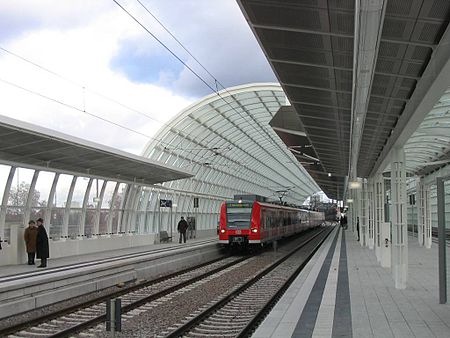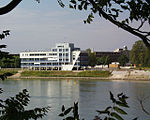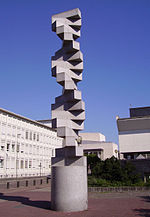Ludwigshafen (Rhein) Mitte station

The Ludwigshafen (Rhein) Mitte (German: middle) station is in the southern part of the centre of the city of Ludwigshafen am Rhein in the German state of Rhineland-Palatinate. It was established in 2003 and is classified by Deutsche Bahn as a category 4 station. It is located next to the public transport hub of Berliner Platz and has good connections to all parts of the city of Mannheim and to the surrounding area. The geographical position of Ludwigshafen Hauptbahnhof (central station) on the outskirts of the city made it necessary to build a new station in a central location at the so-called South Pole of the inner city. The station was opened on 14 December 2003 in the wake of the commissioning of the Rhine-Neckar S-Bahn. The elaborate design of the station was very well accepted by passengers from the beginning. This accelerated the Hauptbahnhof's loss of significance, so that some Regional-Express trains now stop in Ludwigshafen-Mitte, but not at the Hauptbahnhof.
Excerpt from the Wikipedia article Ludwigshafen (Rhein) Mitte station (License: CC BY-SA 3.0, Authors, Images).Ludwigshafen (Rhein) Mitte station
Roonstraße, Ludwigshafen am Rhein Süd
Geographical coordinates (GPS) Address Nearby Places Show on map
Geographical coordinates (GPS)
| Latitude | Longitude |
|---|---|
| N 49.479166666667 ° | E 8.4530555555556 ° |
Address
Roonstraße
67061 Ludwigshafen am Rhein, Süd
Rhineland-Palatinate, Germany
Open on Google Maps










